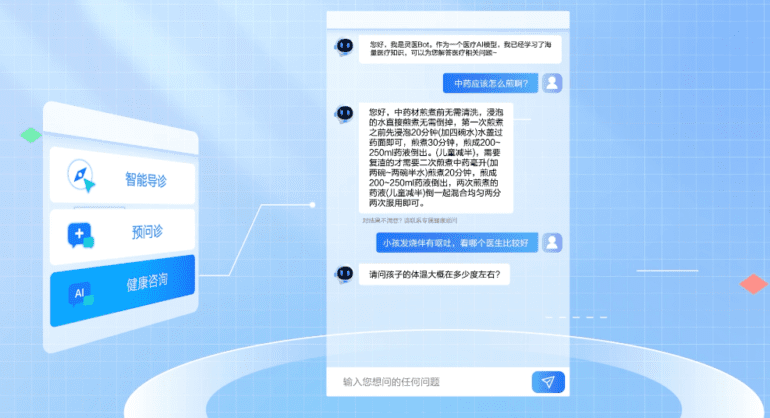TL;DR:
- Baidu introduced Lingyi, an industry-grade medical AI model.
- Lingyi transforms free-text input into structured medical records.
- It analyzes and generates patient data, aiding diagnosis and treatment.
- The model parses multiple medical literature articles for intelligent responses.
- Lingyi serves as a 24-hour “healthcare manager” and supports pharmaceutical companies.
- It offers Lite, flagship, and custom versions for various applications.
- Partners can access Lingyi through API integration or as plugins.
- Baidu collaborates with key companies and medical institutions.
Main AI News:
China’s tech giant Baidu, renowned for its relentless pursuit of innovation, has recently introduced a groundbreaking addition to its repertoire of cutting-edge AI models. Following the successful launch of its AI chatbot, Ernie, the company now unveils its latest triumph – an industry-grade medical AI model named Lingyi, which translates to “Spiritual Doctor.”
Lingyi marks a significant leap forward in the realm of healthcare digitization and intelligence. This impressive large language model (LLM) is currently available for trial use in both upstream and downstream sectors of the healthcare industry. What sets Lingyi apart is its ability to effortlessly transform free-text input into structured medical records, providing accurate analysis and generation of patient complaints, medical histories, and more. It achieves this feat through the interpretation of doctor-patient conversations, offering a remarkable degree of precision.
One of Lingyi’s standout features is its simultaneous parsing of multiple Chinese and English medical literature articles. This unique capability empowers it to deliver intelligent responses and insights based on the content of medical literature. It’s not merely an AI model; it’s a knowledge powerhouse.
When it comes to the critical task of diagnosis and treatment, the Lingyi Large Model shines. Through multi-turn dialogues, it can comprehensively understand a patient’s condition in real-time. This functionality proves invaluable in assisting healthcare professionals in diagnosing diseases and formulating effective treatment plans. Furthermore, Lingyi serves as a 24-hour “healthcare manager” for patients, offering a diverse range of capabilities. It also extends its support to pharmaceutical companies, delivering professional training and indispensable medical information.
Baidu has taken a proactive approach to cater to diverse needs and application scenarios with the Lingyi Large Model. It is available in Lite, flagship, and custom versions, ensuring that it can seamlessly integrate into a variety of contexts. Baidu is keen to foster collaboration, allowing partners to access this powerful AI model through API integration or by embedding it as plugins into existing product systems.
The tech giant has wasted no time in forming strategic partnerships, including collaborations with companies like Gushengtang and Ling Jiashe. Moreover, it is selectively open to over 200 medical institutions, comprising public hospitals, pharmaceutical companies, internet hospital platforms, and chain pharmacies. Baidu’s commitment to advancing the healthcare industry through AI innovation is both commendable and transformative, promising a brighter, more intelligent future for healthcare professionals and patients alike.
Conclusion:
Baidu’s launch of Lingyi, an advanced medical AI model, is poised to revolutionize the healthcare industry. With its ability to transform free-text input into structured medical records, provide precise analyses, and offer real-time patient insights, Lingyi is set to enhance healthcare professionals’ capabilities. Furthermore, its availability in various versions and strategic partnerships with key players in the healthcare sector position Baidu as a formidable force in shaping the future of healthcare through AI innovation.

